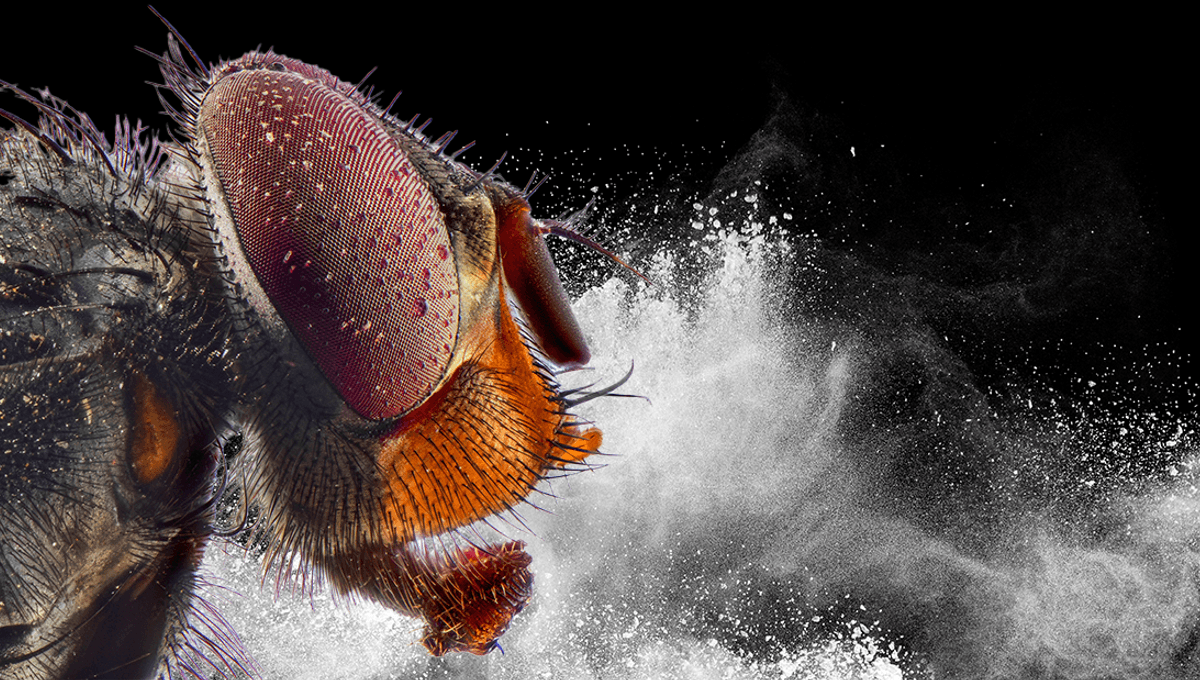Did you know that flies hate cocaine? These well-adapted creatures have evolved to avoid things that might do them harm by developing a distaste for bitter things. Knock out those receptors, however, and it's a very different story as they, just like humans, become really rather partial to a spot of cocaine.
Drosophila, a kind of fly, is a vital model organism for myriad conditions and diseases owing to the fact that they share a lot more in common with humans than you might think. That includes sharing around 75 percent of the genes that cause disease in the human population. So, if you’re wondering why on Earth we’d want to get flies into cocaine, it’s so that we can build a model to study cocaine use disorder and, hopefully, work towards better therapies. On many levels flies and humans are more alike than we thought. Dr Adrian Rothenfluh The reason why flies hate cocaine so much is because of its very bitter taste. In the modified flies, this ability to taste was knocked out, and they very quickly started reacting to cocaine in a similar way to humans. They developed a taste for it within 16 hours of exposure, and at low doses, reacted by running around a lot – much like humans. When given too much, the flies were incapacitated, which is also what happens to humans who consume too much cocaine. These similarities, the team says, aren’t all that surprising. Dr Adrian Rothenfluh and Pearl Cummins-Beebee (front), author on the paper, inspect anesthetized fruit flies under a microscope. Image credit: Caitlyn Harris / University of Utah Health “Over the past decades, it has emerged that on many levels flies and humans are more alike than we thought,” senior author Dr Adrian Rothenfluh of the University of Utah told IFLScience. “For example, we have shown a number of times that the same genes that regulate flies' responses to alcohol are also involved in human alcohol use disorder. We therefore predict that this will also hold true for genes linked to human cocaine use disorder, and that we will be able to study their mechanism of action in flies.” Flies enable us to study things much faster than would be possible in humans, meaning we can reach new therapies for addiction in less time. We’re not at the stage of developing therapies for cocaine addiction just yet, but the flies’ hatred for the highly addictive substance (before their bitterness perception was knocked out, that is) has already provided some fascinating insights. Once again, the so-called 'lowly’ fly turns out to be a good model organism to understand the genetics and mechanisms of human disorders. Dr Adrian Rothenfluh “What that means is that high doses of cocaine are really bad for flies – as they are for humans – and therefore evolution has selected for flies that can taste and avoid the substance,” said Rothenfluh. “The other thing is that, once again, the so-called 'lowly’ fly turns out to be a good model organism to understand the genetics and mechanisms of human disorders.” The study is published in The Journal of Neuroscience.





